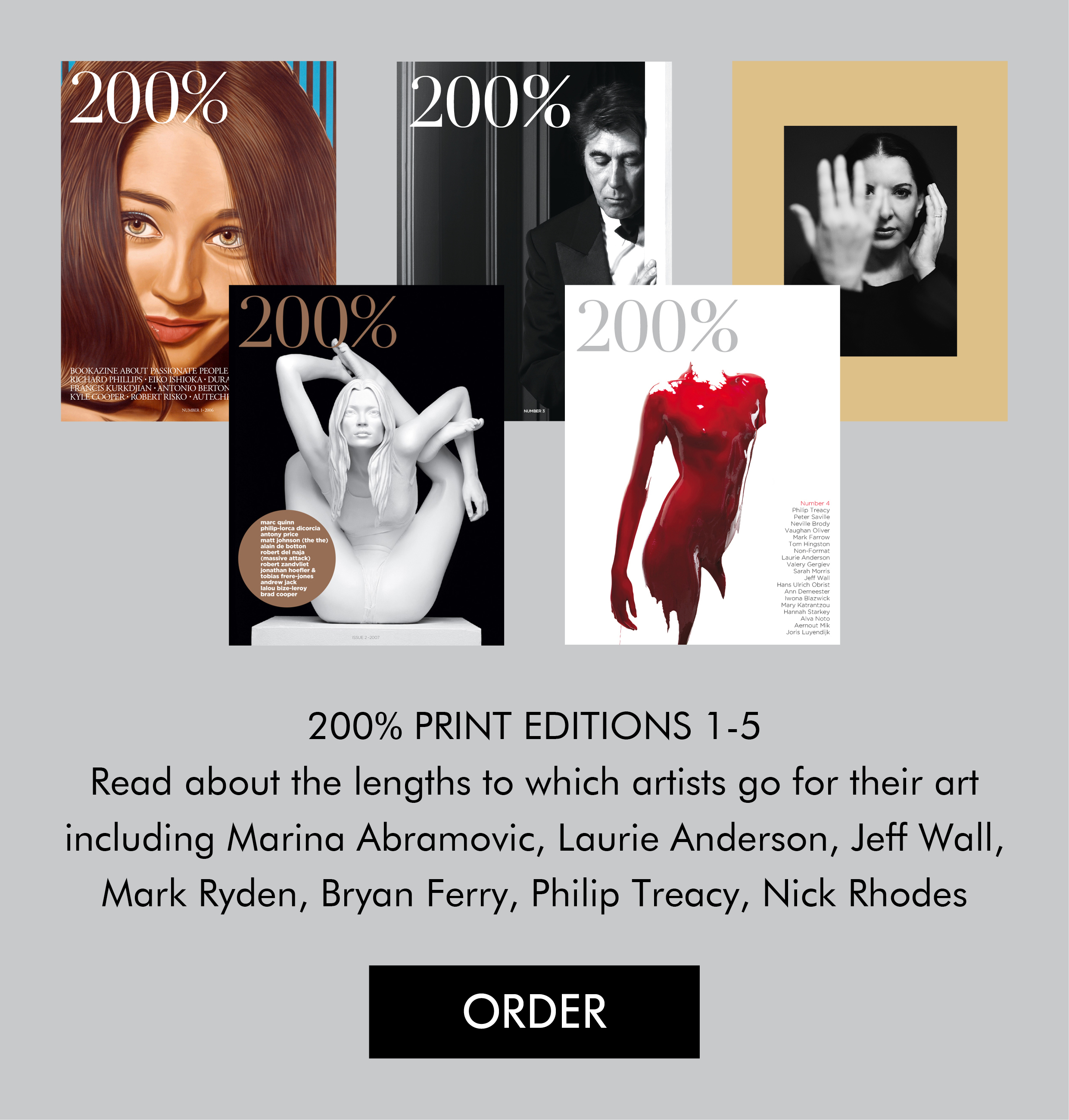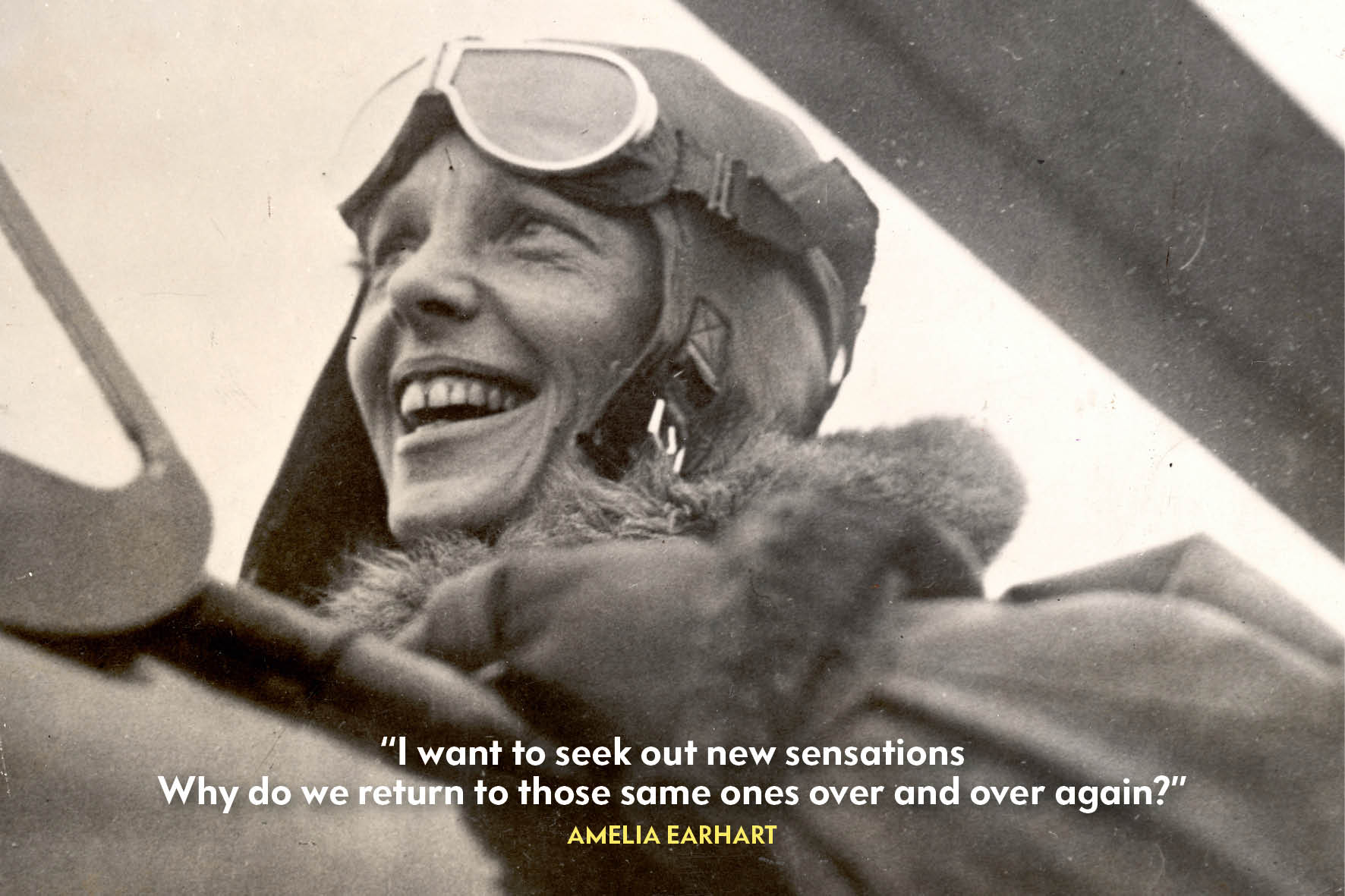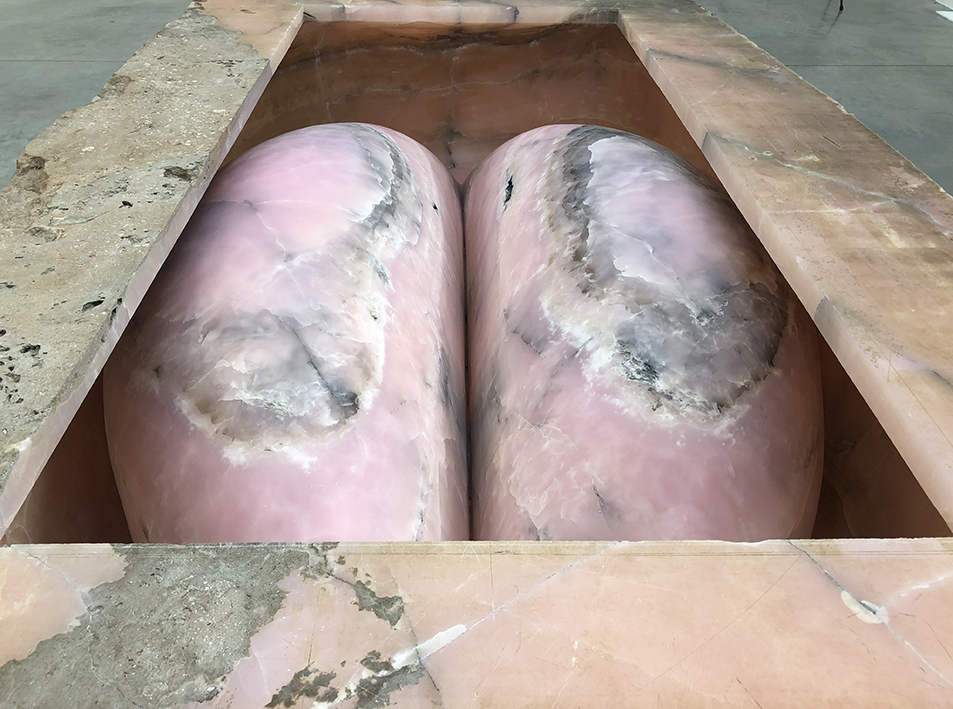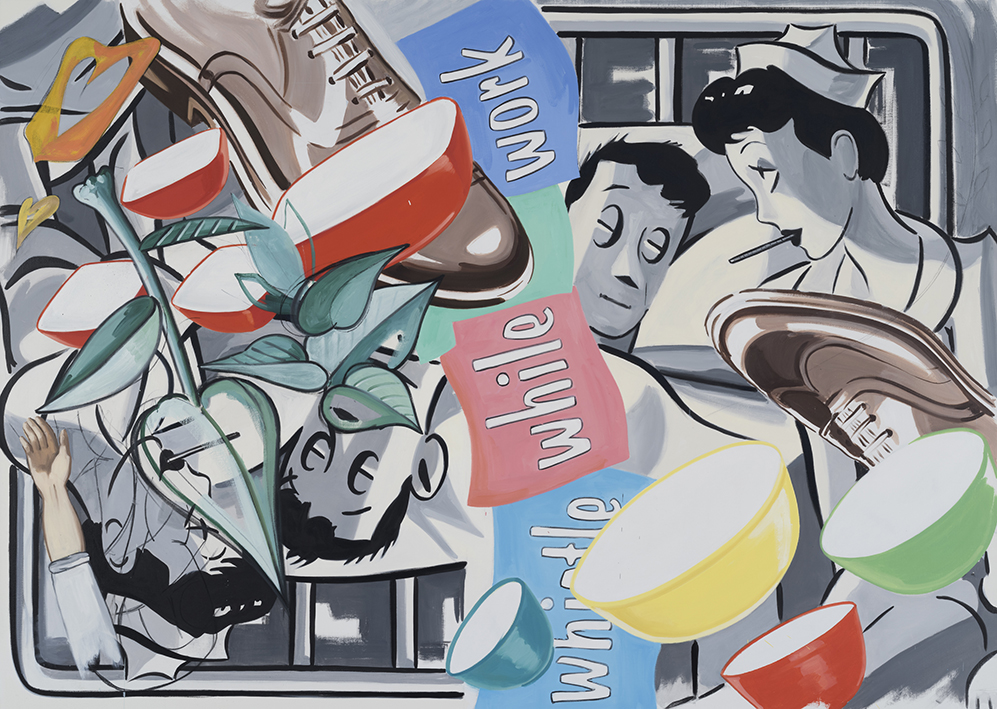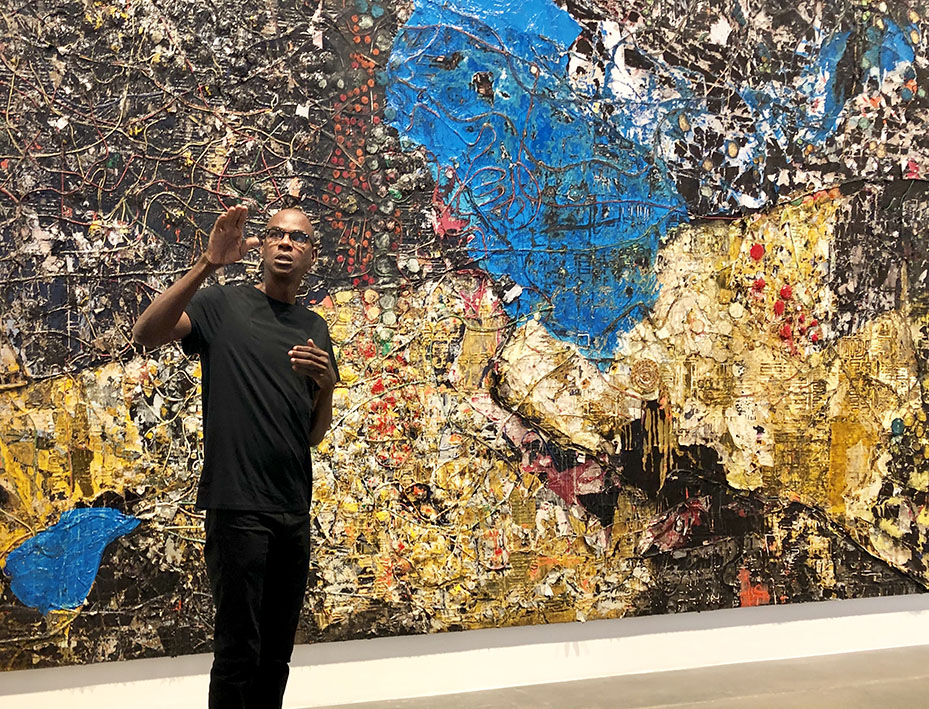 As London gears up for ‘London Fashion Week’, 200% brings you an interview with Professor Louise Wilson OBE, Central Saint Martins Master of Fashion Course Director. Wilson is known for her deconstruct-then-reconstruct teaching style, and clear and outspoken views. Here she explains why “preparing” students for business is not the primary role of CSM; why she longs for “fashion to be unfashionable”, and whether there are any benefits for her to give interviews.
200%: Each year you review many portfolios from young, aspiring, fashion designers who apply for Central Saint Martins. How do you spot if someone has talent; for what qualities are you searching?
Louise Wilson: My job description is not to spot talent; my job description is
Course Director. If I was a talent spotter, I would be called a ‘talent spotter’. I’m an educator: thus I’m looking for people that are interested in their subject, some of whom may become talented, but the premis of Central Saint Martins MA course is to educate people. Thus, whilst not being spotted as talented, with an education, you can still contribute to the design world. Saint Martins is tagged with this ‘star-talent-spotting’ label: but, when you’re here in the building, that’s not what we’re about – that’s other people’s projections.
200%: For what do you look when you review a portfolio?
Louise Wilson: I look for different skills: some people have cutting skills, some design or colour skills, some research skills, and some have it all. Whilst some people have only one or two skills, you take them in the hope you can drag the other skills out of them.
200%: Do you also teach your students the business side of the job?
Louise Wilson: No, because we’re too busy teaching them the creative aspect of the job, and we can not and should not be expected to do everything.
200%: Somehow, though, you teach your students the business side of the job as they all go on to have quite successful businesses.
Louise Wilson: I don’t think we do anything in particular, as we don’t give any lectures specific to business as it’s in-built! In-built in the briefs; in-built when we speak to them; in-built into dialogues, and with people that they meet and whom we suggest they meet. Whilst this is how we “prepare” them for business, this is not our primary role. We’re an Art college, and I never say we “prepare” them for business. Many art colleges have tried to tackle business and it has not been a success.
200%: It appears that some fashion journalists make your name synonymous with the words of ‘fearsome’, ‘opinionated’, or ‘abrasive’ when they refer to your teaching style. Does it bother you how you’re portrayed in the press?
Louise Wilson: Yes, it can be quite irritating and stupid. It bothers me in the respect that, if a
multinational company was considering employing me as a consultant they may be put off, which is complete bullshit as I have previously worked as a consultant for Donna [Karan] and others. The rest of the time I don’t really give it much thought. Luckily I have another life, so I couldn’t care less. I also realize that a lot of people don’t even read most of the interviews, but it’s guaranteed that when it’s truly nasty it’s in the most well-read publications.
200%: Is there any benefit for you to give interviews?
Louise Wilson: The interviews don’t bring anything compared with, for instance, that it does for a film actor. If you’re an actor like
Brad Pitt, you’re selling a
film and when you do those press interviews you’re getting paid technically. That’s been negotiated, it’s in your contract. If I give time to do press interviews I’m taking time out from teaching that I have to make up at another time. I’m not getting paid and there is no benefit. Whereas every other sector when you read interviews there is a knock-on effect, there’s a product to buy or they benefit somehow in kind, like the actor promoting a film. With education there is
nothing to buy. What happens in education is you give more and more
of yourself and then you realize you get less and less back. My mother is upset by some of the articles. There is little or no benefit and I have thought
like that for years.
Central Saint Martins has a good reputation; the MA has a good reputation. It’s a reputation defined by it’s work, its moniker, not by me or how many interviews I do as the work stands for itself. This is why I’m sort of
ambivalent about interviews on me because it [Central Saint
Martins] will continue long after I’ve
gone, as the college is bigger
than any one person.
200%: Thus, does it concern you that the public’s perception of the MA Fashion course is that it is ‘Louise Wilson’?
Louise Wilson: Yes a concern is that you have a group of
students that think they’re coming to be taught by me, which is wrong
as they’re coming to be taught by a great course team. It shouldn’t matter whether I’m there or not. They’re coming here to do
their own work. It’s only when they do their own work that I can even give them a critique.
I was just recently talking with a student who was asking for an
address for something and I knew he was looking at me as if to say “why don’t you
have it in a rolodex”, which is stupid as the rolodex would have to be as
big as this desk. If you’re just handing over numbers
and information that would be useless. A student has to start at the
beginning. It’s the whole process of them making a phone call, them sending an e-mail, try this and that. It’s not just giving them a contact
because they miss the whole journey of what they might find on the way.
I like being with young people and seeing them get better. That’s very rewarding.
200%: Do you have an explanation as to why there is always this pressure
on fashion to deliver more?
Louise Wilson: In the 1990s, fashion produced Hussein Chalayan and Alexander McQueen, amongst others; in the 1980s fashion produced John Galliano and Rei Kawakubo. They all created things that had never happened before that have stood the test of time. Thus, with such success, there is always this pressure on fashion to deliver more.
200%: The incubation period of fashion is not as long as, for instance, product design, as people expect fashion to be constantly associated with ‘new’ things.
Louise Wilson: Fashion is very fashionable. I’m longing for it
to be become unfashionable. Maybe they could do architecture and
product design in reality shows and find ‘The Next Top Kettle’. Those
subjects are allowed much more time to incubate. People revere Marc Newson and people like him. They have much longer incubation periods and there is maybe less pressure on them. But fashion is quite naff
because fashion is fashionable. It’s debatable what is fashionable
because Nokia phones are fashionable, but they are not classified as fashion even now fashion people may well be designing them and coming up with
colours for them. But it’s not related as fashion, because fashion is
only allowed to be clothes on models, but fashion is a much wider
spectrum than that.
Written by Thierry Somers and Marie Drysdale (02/2011)
Picture: Greg Kessler (http://www.gobackstage.blogspot.com)
As London gears up for ‘London Fashion Week’, 200% brings you an interview with Professor Louise Wilson OBE, Central Saint Martins Master of Fashion Course Director. Wilson is known for her deconstruct-then-reconstruct teaching style, and clear and outspoken views. Here she explains why “preparing” students for business is not the primary role of CSM; why she longs for “fashion to be unfashionable”, and whether there are any benefits for her to give interviews.
200%: Each year you review many portfolios from young, aspiring, fashion designers who apply for Central Saint Martins. How do you spot if someone has talent; for what qualities are you searching?
Louise Wilson: My job description is not to spot talent; my job description is
Course Director. If I was a talent spotter, I would be called a ‘talent spotter’. I’m an educator: thus I’m looking for people that are interested in their subject, some of whom may become talented, but the premis of Central Saint Martins MA course is to educate people. Thus, whilst not being spotted as talented, with an education, you can still contribute to the design world. Saint Martins is tagged with this ‘star-talent-spotting’ label: but, when you’re here in the building, that’s not what we’re about – that’s other people’s projections.
200%: For what do you look when you review a portfolio?
Louise Wilson: I look for different skills: some people have cutting skills, some design or colour skills, some research skills, and some have it all. Whilst some people have only one or two skills, you take them in the hope you can drag the other skills out of them.
200%: Do you also teach your students the business side of the job?
Louise Wilson: No, because we’re too busy teaching them the creative aspect of the job, and we can not and should not be expected to do everything.
200%: Somehow, though, you teach your students the business side of the job as they all go on to have quite successful businesses.
Louise Wilson: I don’t think we do anything in particular, as we don’t give any lectures specific to business as it’s in-built! In-built in the briefs; in-built when we speak to them; in-built into dialogues, and with people that they meet and whom we suggest they meet. Whilst this is how we “prepare” them for business, this is not our primary role. We’re an Art college, and I never say we “prepare” them for business. Many art colleges have tried to tackle business and it has not been a success.
200%: It appears that some fashion journalists make your name synonymous with the words of ‘fearsome’, ‘opinionated’, or ‘abrasive’ when they refer to your teaching style. Does it bother you how you’re portrayed in the press?
Louise Wilson: Yes, it can be quite irritating and stupid. It bothers me in the respect that, if a
multinational company was considering employing me as a consultant they may be put off, which is complete bullshit as I have previously worked as a consultant for Donna [Karan] and others. The rest of the time I don’t really give it much thought. Luckily I have another life, so I couldn’t care less. I also realize that a lot of people don’t even read most of the interviews, but it’s guaranteed that when it’s truly nasty it’s in the most well-read publications.
200%: Is there any benefit for you to give interviews?
Louise Wilson: The interviews don’t bring anything compared with, for instance, that it does for a film actor. If you’re an actor like
Brad Pitt, you’re selling a
film and when you do those press interviews you’re getting paid technically. That’s been negotiated, it’s in your contract. If I give time to do press interviews I’m taking time out from teaching that I have to make up at another time. I’m not getting paid and there is no benefit. Whereas every other sector when you read interviews there is a knock-on effect, there’s a product to buy or they benefit somehow in kind, like the actor promoting a film. With education there is
nothing to buy. What happens in education is you give more and more
of yourself and then you realize you get less and less back. My mother is upset by some of the articles. There is little or no benefit and I have thought
like that for years.
Central Saint Martins has a good reputation; the MA has a good reputation. It’s a reputation defined by it’s work, its moniker, not by me or how many interviews I do as the work stands for itself. This is why I’m sort of
ambivalent about interviews on me because it [Central Saint
Martins] will continue long after I’ve
gone, as the college is bigger
than any one person.
200%: Thus, does it concern you that the public’s perception of the MA Fashion course is that it is ‘Louise Wilson’?
Louise Wilson: Yes a concern is that you have a group of
students that think they’re coming to be taught by me, which is wrong
as they’re coming to be taught by a great course team. It shouldn’t matter whether I’m there or not. They’re coming here to do
their own work. It’s only when they do their own work that I can even give them a critique.
I was just recently talking with a student who was asking for an
address for something and I knew he was looking at me as if to say “why don’t you
have it in a rolodex”, which is stupid as the rolodex would have to be as
big as this desk. If you’re just handing over numbers
and information that would be useless. A student has to start at the
beginning. It’s the whole process of them making a phone call, them sending an e-mail, try this and that. It’s not just giving them a contact
because they miss the whole journey of what they might find on the way.
I like being with young people and seeing them get better. That’s very rewarding.
200%: Do you have an explanation as to why there is always this pressure
on fashion to deliver more?
Louise Wilson: In the 1990s, fashion produced Hussein Chalayan and Alexander McQueen, amongst others; in the 1980s fashion produced John Galliano and Rei Kawakubo. They all created things that had never happened before that have stood the test of time. Thus, with such success, there is always this pressure on fashion to deliver more.
200%: The incubation period of fashion is not as long as, for instance, product design, as people expect fashion to be constantly associated with ‘new’ things.
Louise Wilson: Fashion is very fashionable. I’m longing for it
to be become unfashionable. Maybe they could do architecture and
product design in reality shows and find ‘The Next Top Kettle’. Those
subjects are allowed much more time to incubate. People revere Marc Newson and people like him. They have much longer incubation periods and there is maybe less pressure on them. But fashion is quite naff
because fashion is fashionable. It’s debatable what is fashionable
because Nokia phones are fashionable, but they are not classified as fashion even now fashion people may well be designing them and coming up with
colours for them. But it’s not related as fashion, because fashion is
only allowed to be clothes on models, but fashion is a much wider
spectrum than that.
Written by Thierry Somers and Marie Drysdale (02/2011)
Picture: Greg Kessler (http://www.gobackstage.blogspot.com)
Fashion
 As London gears up for ‘London Fashion Week’, 200% brings you an interview with Professor Louise Wilson OBE, Central Saint Martins Master of Fashion Course Director. Wilson is known for her deconstruct-then-reconstruct teaching style, and clear and outspoken views. Here she explains why “preparing” students for business is not the primary role of CSM; why she longs for “fashion to be unfashionable”, and whether there are any benefits for her to give interviews.
200%: Each year you review many portfolios from young, aspiring, fashion designers who apply for Central Saint Martins. How do you spot if someone has talent; for what qualities are you searching?
Louise Wilson: My job description is not to spot talent; my job description is
Course Director. If I was a talent spotter, I would be called a ‘talent spotter’. I’m an educator: thus I’m looking for people that are interested in their subject, some of whom may become talented, but the premis of Central Saint Martins MA course is to educate people. Thus, whilst not being spotted as talented, with an education, you can still contribute to the design world. Saint Martins is tagged with this ‘star-talent-spotting’ label: but, when you’re here in the building, that’s not what we’re about – that’s other people’s projections.
200%: For what do you look when you review a portfolio?
Louise Wilson: I look for different skills: some people have cutting skills, some design or colour skills, some research skills, and some have it all. Whilst some people have only one or two skills, you take them in the hope you can drag the other skills out of them.
200%: Do you also teach your students the business side of the job?
Louise Wilson: No, because we’re too busy teaching them the creative aspect of the job, and we can not and should not be expected to do everything.
200%: Somehow, though, you teach your students the business side of the job as they all go on to have quite successful businesses.
Louise Wilson: I don’t think we do anything in particular, as we don’t give any lectures specific to business as it’s in-built! In-built in the briefs; in-built when we speak to them; in-built into dialogues, and with people that they meet and whom we suggest they meet. Whilst this is how we “prepare” them for business, this is not our primary role. We’re an Art college, and I never say we “prepare” them for business. Many art colleges have tried to tackle business and it has not been a success.
200%: It appears that some fashion journalists make your name synonymous with the words of ‘fearsome’, ‘opinionated’, or ‘abrasive’ when they refer to your teaching style. Does it bother you how you’re portrayed in the press?
Louise Wilson: Yes, it can be quite irritating and stupid. It bothers me in the respect that, if a
multinational company was considering employing me as a consultant they may be put off, which is complete bullshit as I have previously worked as a consultant for Donna [Karan] and others. The rest of the time I don’t really give it much thought. Luckily I have another life, so I couldn’t care less. I also realize that a lot of people don’t even read most of the interviews, but it’s guaranteed that when it’s truly nasty it’s in the most well-read publications.
200%: Is there any benefit for you to give interviews?
Louise Wilson: The interviews don’t bring anything compared with, for instance, that it does for a film actor. If you’re an actor like
Brad Pitt, you’re selling a
film and when you do those press interviews you’re getting paid technically. That’s been negotiated, it’s in your contract. If I give time to do press interviews I’m taking time out from teaching that I have to make up at another time. I’m not getting paid and there is no benefit. Whereas every other sector when you read interviews there is a knock-on effect, there’s a product to buy or they benefit somehow in kind, like the actor promoting a film. With education there is
nothing to buy. What happens in education is you give more and more
of yourself and then you realize you get less and less back. My mother is upset by some of the articles. There is little or no benefit and I have thought
like that for years.
Central Saint Martins has a good reputation; the MA has a good reputation. It’s a reputation defined by it’s work, its moniker, not by me or how many interviews I do as the work stands for itself. This is why I’m sort of
ambivalent about interviews on me because it [Central Saint
Martins] will continue long after I’ve
gone, as the college is bigger
than any one person.
200%: Thus, does it concern you that the public’s perception of the MA Fashion course is that it is ‘Louise Wilson’?
Louise Wilson: Yes a concern is that you have a group of
students that think they’re coming to be taught by me, which is wrong
as they’re coming to be taught by a great course team. It shouldn’t matter whether I’m there or not. They’re coming here to do
their own work. It’s only when they do their own work that I can even give them a critique.
I was just recently talking with a student who was asking for an
address for something and I knew he was looking at me as if to say “why don’t you
have it in a rolodex”, which is stupid as the rolodex would have to be as
big as this desk. If you’re just handing over numbers
and information that would be useless. A student has to start at the
beginning. It’s the whole process of them making a phone call, them sending an e-mail, try this and that. It’s not just giving them a contact
because they miss the whole journey of what they might find on the way.
I like being with young people and seeing them get better. That’s very rewarding.
200%: Do you have an explanation as to why there is always this pressure
on fashion to deliver more?
Louise Wilson: In the 1990s, fashion produced Hussein Chalayan and Alexander McQueen, amongst others; in the 1980s fashion produced John Galliano and Rei Kawakubo. They all created things that had never happened before that have stood the test of time. Thus, with such success, there is always this pressure on fashion to deliver more.
200%: The incubation period of fashion is not as long as, for instance, product design, as people expect fashion to be constantly associated with ‘new’ things.
Louise Wilson: Fashion is very fashionable. I’m longing for it
to be become unfashionable. Maybe they could do architecture and
product design in reality shows and find ‘The Next Top Kettle’. Those
subjects are allowed much more time to incubate. People revere Marc Newson and people like him. They have much longer incubation periods and there is maybe less pressure on them. But fashion is quite naff
because fashion is fashionable. It’s debatable what is fashionable
because Nokia phones are fashionable, but they are not classified as fashion even now fashion people may well be designing them and coming up with
colours for them. But it’s not related as fashion, because fashion is
only allowed to be clothes on models, but fashion is a much wider
spectrum than that.
Written by Thierry Somers and Marie Drysdale (02/2011)
Picture: Greg Kessler (http://www.gobackstage.blogspot.com)
As London gears up for ‘London Fashion Week’, 200% brings you an interview with Professor Louise Wilson OBE, Central Saint Martins Master of Fashion Course Director. Wilson is known for her deconstruct-then-reconstruct teaching style, and clear and outspoken views. Here she explains why “preparing” students for business is not the primary role of CSM; why she longs for “fashion to be unfashionable”, and whether there are any benefits for her to give interviews.
200%: Each year you review many portfolios from young, aspiring, fashion designers who apply for Central Saint Martins. How do you spot if someone has talent; for what qualities are you searching?
Louise Wilson: My job description is not to spot talent; my job description is
Course Director. If I was a talent spotter, I would be called a ‘talent spotter’. I’m an educator: thus I’m looking for people that are interested in their subject, some of whom may become talented, but the premis of Central Saint Martins MA course is to educate people. Thus, whilst not being spotted as talented, with an education, you can still contribute to the design world. Saint Martins is tagged with this ‘star-talent-spotting’ label: but, when you’re here in the building, that’s not what we’re about – that’s other people’s projections.
200%: For what do you look when you review a portfolio?
Louise Wilson: I look for different skills: some people have cutting skills, some design or colour skills, some research skills, and some have it all. Whilst some people have only one or two skills, you take them in the hope you can drag the other skills out of them.
200%: Do you also teach your students the business side of the job?
Louise Wilson: No, because we’re too busy teaching them the creative aspect of the job, and we can not and should not be expected to do everything.
200%: Somehow, though, you teach your students the business side of the job as they all go on to have quite successful businesses.
Louise Wilson: I don’t think we do anything in particular, as we don’t give any lectures specific to business as it’s in-built! In-built in the briefs; in-built when we speak to them; in-built into dialogues, and with people that they meet and whom we suggest they meet. Whilst this is how we “prepare” them for business, this is not our primary role. We’re an Art college, and I never say we “prepare” them for business. Many art colleges have tried to tackle business and it has not been a success.
200%: It appears that some fashion journalists make your name synonymous with the words of ‘fearsome’, ‘opinionated’, or ‘abrasive’ when they refer to your teaching style. Does it bother you how you’re portrayed in the press?
Louise Wilson: Yes, it can be quite irritating and stupid. It bothers me in the respect that, if a
multinational company was considering employing me as a consultant they may be put off, which is complete bullshit as I have previously worked as a consultant for Donna [Karan] and others. The rest of the time I don’t really give it much thought. Luckily I have another life, so I couldn’t care less. I also realize that a lot of people don’t even read most of the interviews, but it’s guaranteed that when it’s truly nasty it’s in the most well-read publications.
200%: Is there any benefit for you to give interviews?
Louise Wilson: The interviews don’t bring anything compared with, for instance, that it does for a film actor. If you’re an actor like
Brad Pitt, you’re selling a
film and when you do those press interviews you’re getting paid technically. That’s been negotiated, it’s in your contract. If I give time to do press interviews I’m taking time out from teaching that I have to make up at another time. I’m not getting paid and there is no benefit. Whereas every other sector when you read interviews there is a knock-on effect, there’s a product to buy or they benefit somehow in kind, like the actor promoting a film. With education there is
nothing to buy. What happens in education is you give more and more
of yourself and then you realize you get less and less back. My mother is upset by some of the articles. There is little or no benefit and I have thought
like that for years.
Central Saint Martins has a good reputation; the MA has a good reputation. It’s a reputation defined by it’s work, its moniker, not by me or how many interviews I do as the work stands for itself. This is why I’m sort of
ambivalent about interviews on me because it [Central Saint
Martins] will continue long after I’ve
gone, as the college is bigger
than any one person.
200%: Thus, does it concern you that the public’s perception of the MA Fashion course is that it is ‘Louise Wilson’?
Louise Wilson: Yes a concern is that you have a group of
students that think they’re coming to be taught by me, which is wrong
as they’re coming to be taught by a great course team. It shouldn’t matter whether I’m there or not. They’re coming here to do
their own work. It’s only when they do their own work that I can even give them a critique.
I was just recently talking with a student who was asking for an
address for something and I knew he was looking at me as if to say “why don’t you
have it in a rolodex”, which is stupid as the rolodex would have to be as
big as this desk. If you’re just handing over numbers
and information that would be useless. A student has to start at the
beginning. It’s the whole process of them making a phone call, them sending an e-mail, try this and that. It’s not just giving them a contact
because they miss the whole journey of what they might find on the way.
I like being with young people and seeing them get better. That’s very rewarding.
200%: Do you have an explanation as to why there is always this pressure
on fashion to deliver more?
Louise Wilson: In the 1990s, fashion produced Hussein Chalayan and Alexander McQueen, amongst others; in the 1980s fashion produced John Galliano and Rei Kawakubo. They all created things that had never happened before that have stood the test of time. Thus, with such success, there is always this pressure on fashion to deliver more.
200%: The incubation period of fashion is not as long as, for instance, product design, as people expect fashion to be constantly associated with ‘new’ things.
Louise Wilson: Fashion is very fashionable. I’m longing for it
to be become unfashionable. Maybe they could do architecture and
product design in reality shows and find ‘The Next Top Kettle’. Those
subjects are allowed much more time to incubate. People revere Marc Newson and people like him. They have much longer incubation periods and there is maybe less pressure on them. But fashion is quite naff
because fashion is fashionable. It’s debatable what is fashionable
because Nokia phones are fashionable, but they are not classified as fashion even now fashion people may well be designing them and coming up with
colours for them. But it’s not related as fashion, because fashion is
only allowed to be clothes on models, but fashion is a much wider
spectrum than that.
Written by Thierry Somers and Marie Drysdale (02/2011)
Picture: Greg Kessler (http://www.gobackstage.blogspot.com)

